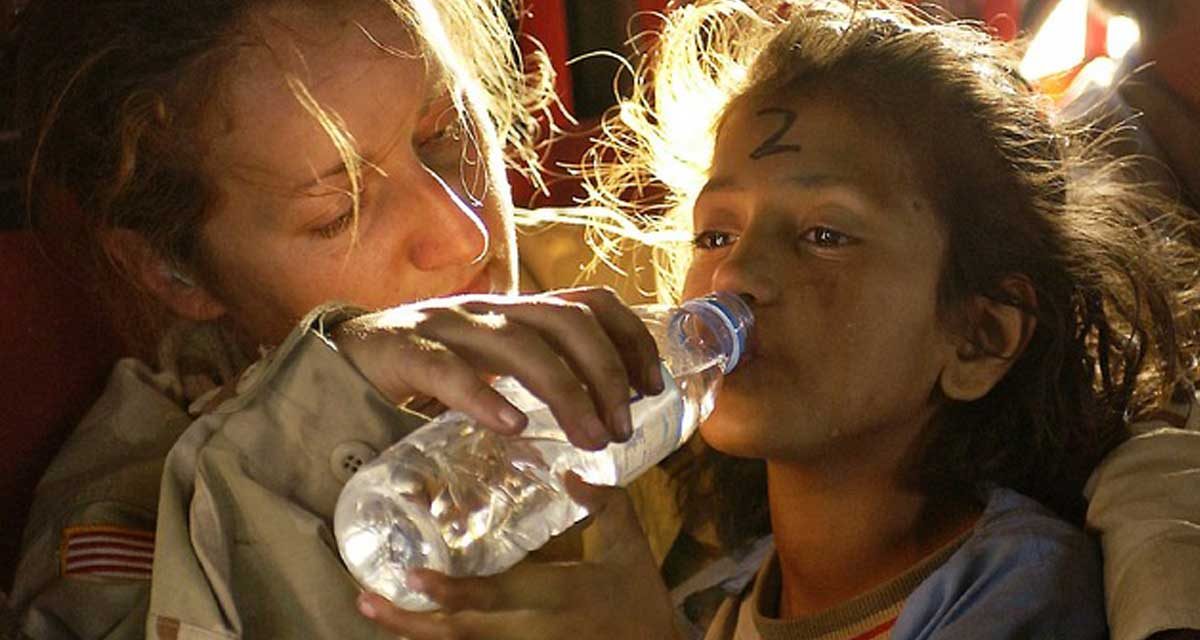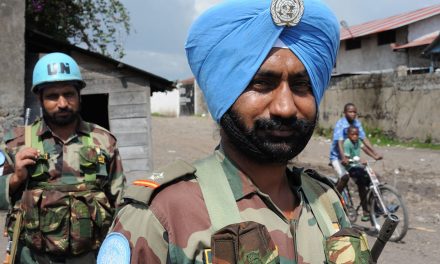Which Countries are Losing the Most People? According to the report, more than two thirds of those who are displaced come from five countries: Syria, Afghanistan, South Sudan, Myanmar and Somalia.
Syria
Accounting for the largest number of displaced is Syria with 6.7 million fleeing to bordering countries and abroad since 2011. The on-going Syrian Civil War has been described as one of the worst humanitarian crisis in the world and has led to hundreds and thousands of deaths, human rights violations, rare diseases and more. Inspired by the wave of protests during the ‘Arab Spring’, eight years ago, peaceful protests began in Syria as a way of expressing discontent with the Government and demanding democratic reform. Quickly, protest turned into violent conflict leading to what is now known as one of the worst civil wars seen in the 21st century. Neighbouring countries, including Turkey, Jordan and Lebanon, have taken in the highest number of Syrian refugees, with Turkey accounting for 3.6 million people in 2018.Venezuela
However, it isn’t just Syria driving global displacement. While not mentioned in the five countries, the UNHCR have detected that the number of those displaced isn’t completely accurate due to the crisis in Venezuela being only partly reflected in the data. The South American country is currently experiencing the worst economic crisis in its history, demonstrated by hyperinflation and food shortages, leading to many of the population suffering from poverty, disease and hunger. To make matters worse, political instability has been rife in the region for some time. Corruption has been a staple of the Venezuelan Government and many believe that the 2018 Presidential election that saw Nicolas Maduro re-elected were invalid. This eventually led to the National Assembly declaring Juan Guaido as the acting president earlier this year. Around 3.4 million Venezuelans have left the country since the crisis began, making up around 10% of its population. The report finds that Venezuela accounted for the second largest flow of new international displacements, and that number only stands to increase.Moldova
Another nation whose emigration data is unaccounted for accurately is the small East-European country of Moldova, a hidden gem for wine lovers, yet stalled by crooked politicians – until last week. It is said that a third of the country’s population had fled following spiraling corruption and electoral scandals. The trigger point that exacerbated Moldova’s depopulation to unprecedented rates was the emergence of the ‘Heist of the Century’ in 2015 – a banking scandal that saw 1/8 of the country’s GDP vanish from three banks and involved government officials linked to now-ousted oligarch Vlad Plahotniuc. This led to mass protests and deepening political, economic, social and even constitutional crises for four years, driving an exodus rate of 106 people per day – a worrying depopulation pace for an already small country of around 3 million. However, last week’s developments saw a surprise majority form following the parliamentary election in February, and a new government invested, putting an end to the political crisis provoked by ‘the Plahotniuc regime’, as local media reports. Within days since the oligarch fled the country last Friday, a large proportion of Moldovan expats have already indicated that they plan on returning home. For once in a long time, Moldova brings good news to the table. While most people are forced to leave their country due to dangerous circumstances, many also leave in the same fashion. The 2015, the European immigration crisis showed us the conditions and the risks taken by so many in order to reach safety, from travelling in inhumane conditions due to lack of documentation to attempting to make it across the Mediterranean Sea. Once they make it to the other side, many will still have to contend with adapting to a new environment, becoming even more financially unstable and separated from the life and people they knew. As record-breaking numbers of displacement seem to be documented every year, is enough being done for the people affected?]]>- Why is California So at Risk from Wildfires? - 13th November 2019
- Carbon Offsetting is Growing but Does it Make a Difference? - 11th November 2019
- Three Confirmed Dead as Australia Prepares for “Catastrophic” Bushfires - 11th November 2019






